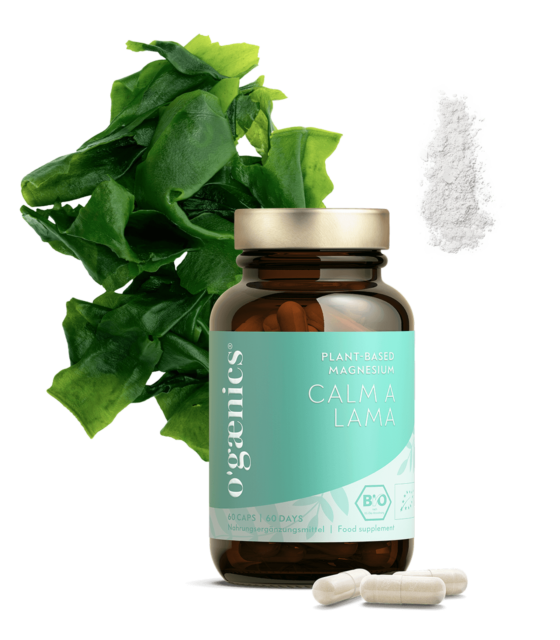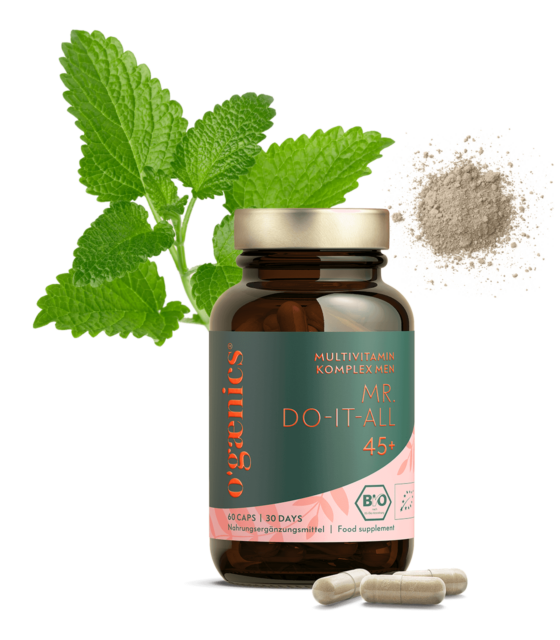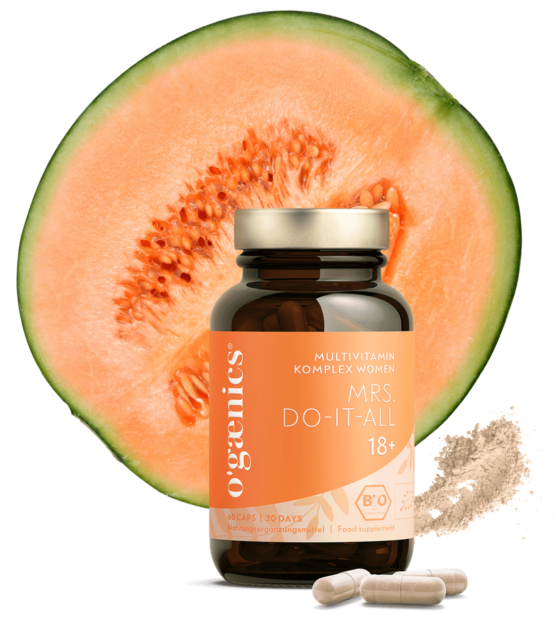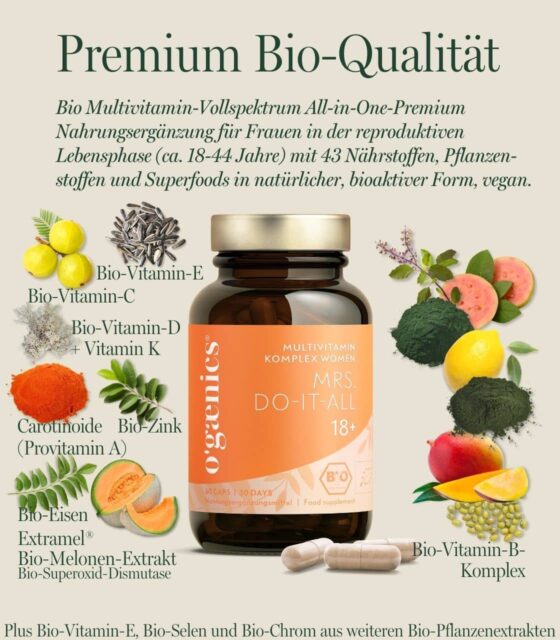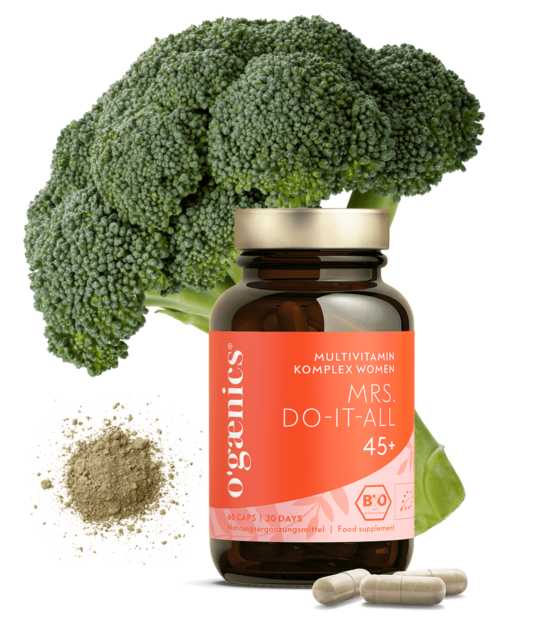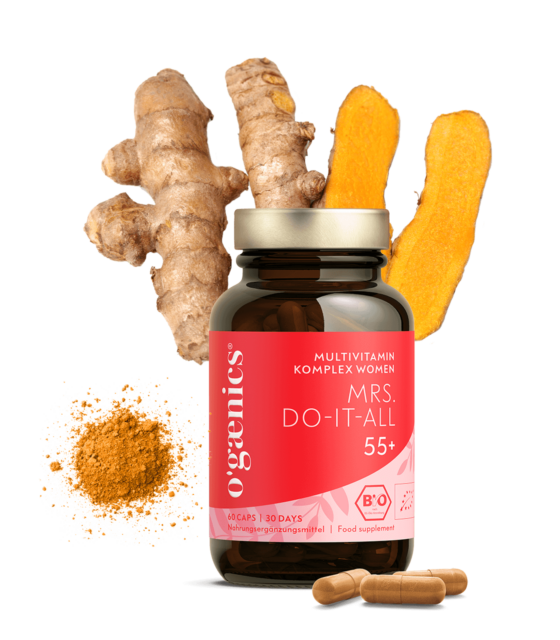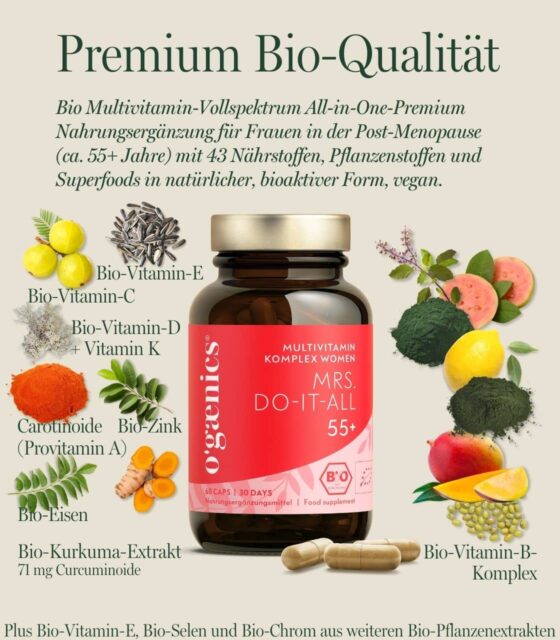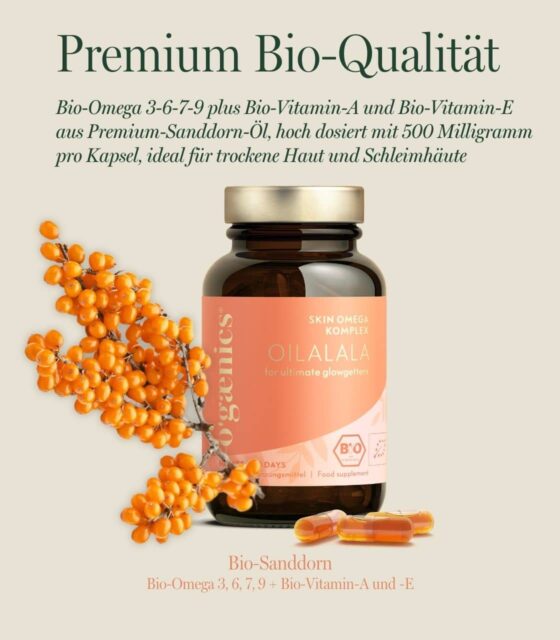IN THIS ARTICLE
Join us for a deep dive into the topic of telomeres, one of the “hallmarks of aging”
Have you ever heard of the mysterious fountain of youth that people have been seeking for ages? Well, it turns out that part of this mystery lies hidden in our own cells – more specifically, in the telomeres. We take you on an exciting journey through the world of telomeres. Find out how they relate to the ageing process and why what ends up on your plate could play a bigger role in your longevity than you think.
What are telomeres?
Telomeres are like the protective caps of our chromosomes that ensure that our DNA is not damaged during cell division. Consequently, they are like the plastic ends of a shoelace that prevent the shoelace from fraying. However, with each cell division, these telomeres become shorter, which can lead to the typical signs of ageing.
The effects on the ageing process
Some cells, such as skin, hair and immune cells, are more affected by telomere shortening because they divide more frequently than other cells. This is why we notice the ageing process particularly in our skin, hair and general state of health.
The importance for our health
Studies have shown that the length of our telomeres is directly linked to our life expectancy, stress, DNA damage and the occurrence of age-related diseases. But according to research, our lifestyle, especially our diet, can also have a major influence on how quickly our telomeres shorten.
In this article you will learn how certain vitamins and minerals can influence our cellular clockwork. Are you ready to unlock the secret to a longer, healthier life? Then let’s get started!
Influencing factors that shorten your telomeres
In recent years, we have learned a lot about the causes of ageing. An important indicator of this is the length of our telomeres, the ends of our chromosomes. These not only play a role in protecting our genes, but also in ageing. Telomeres shorten every time a cell divides. However, if they become too short, the cells stop dividing and age. The accumulation of old cells is considered to be the main cause of ageing and age-related diseases.
The biology of telomeres
The biology of genome stability and telomeres is complex but important to understand. Short and defective telomeres are a starting signal for cell ageing, cell death and DNA damage. Research has shown that over time, the DNA in our cells deteriorates, often due to poor repair mechanisms and other problems. Harmful factors such as toxins in the body, an unbalanced diet and bad habits also contribute to this. Many of these problems indirectly cause our body to produce more “free radicals”, which leads to cell damage.
Free radicals, the enemies of your telomeres
Free radicals are aggressive molecules that can damage our cells. They also accelerate the shortening of telomeres, mainly through damage to a specific DNA sequence.
The role of mitochondria
Mitochondria, the power plants of our cells, are a major source of free radicals. If they do not function properly, they produce more of these harmful molecules. This oxidative stress causes important molecules such as lipids, proteins and DNA to oxidize and become non-functional. Chronic oxidative stress is a major cause of many diseases, including inflammation, which in turn causes telomeres to wear out faster and ages us more quickly.
The importance of balance
These nutrients protect your telomeres
The telomeres, these tiny protective caps at the end of our DNA strands, shorten more quickly when our body is under severe stress, especially due to the effects of free radicals. These radicals are like small aggressive particles that can damage our cells.
To counteract this, there are antioxidants that act like bodyguards and can fight these free radicals. Scientific studies have shown that certain nutrients such as vitamins, minerals, plant substances and fatty acids can help to protect our telomeres and slow down the ageing process.
Vitamins and minerals
Specifically, these are vitamins C, D, E, folate, beta-carotene and the minerals zinc and magnesium. They have positive effects on our telomeres. Apparently they work best together, as studies have shown that women who regularly take multivitamins have longer telomeres. This is interesting because multivitamins are a convenient way to get all of these important nutrients at once, rather than taking each one separately. You can read more about the benefits of multivitamins in our article“Close hidden nutrient gaps: The power of multivitamins.”
Polyphenols
The secondary plant substances found in tea, for example, have also shown that they can protect our telomeres. Older people in China who regularly drink green tea, for example, have longer telomeres and live on average five years longer than their peers who do not drink tea. The polyphenols in green and black tea in particular appear to play an important role in this.
Curcumin
Another protective factor for telomeres is curcumin, a powerful antioxidant found in turmeric. Unfortunately, our body does not absorb curcumin so well if we simply consume it. It therefore makes sense to take turmeric as a dietary supplement, for example in capsules. Incidentally, turmeric is not only good for your telomeres, but also for your liver, our most important detoxification organ. You can read more about this here.
Omega 3 fatty acids
Omega-3 fatty acids are not only good for the heart, but can also influence telomere length. A study has shown that people with a higher ratio of omega-3 to omega-6 fatty acids have longer telomeres. This means that the right amount of fat in our diet is important to keep our telomeres healthy.
The Ogaenics concept against telomere shortening
The Ogaenics multivitamins contain all vitamins and zinc as well as polyphenols to maintain telomere length. MRS DO IT ALL 55+ also contains a valuable turmeric extract, a powerful antioxidant that protects the telomeres. Magnesium is also necessary for the proper functioning of telomerase, so you should take it in combination with one of the multivitamins.
-
Bestseller
-
Bestseller
-
Bestseller
-
Bestseller
Conclusion
In conclusion, it can be said that telomeres play a decisive role in the ageing process. The length of our telomeres not only influences our life expectancy, but also our susceptibility to age-related diseases. While the natural shortening of telomeres is an inevitable part of aging, research offers hope that a healthy lifestyle, a balanced diet rich in certain vitamins and minerals, and reducing stress and oxidative stress can slow the process of telomere shortening.
The findings on the importance of antioxidants, polyphenols, curcumin and omega-3 fatty acids for the protection of our telomeres illustrate how closely our diet and lifestyle are linked to cell ageing. A conscious approach to these nutrients can therefore have a positive impact on our health and longevity. It is fascinating to see how science is finding ways to potentially influence and to some extent control the ageing process. Research into telomeres is still in its relative infancy, but the findings so far offer an exciting perspective on what might be possible in the future to promote a long and healthy life.
.
References
- Jaskelioff M, et al. Telomerase reactivation reverses tissue degeneration in aged telomerase-deficient mice. Nature. 2011;469:102-107.
- Sahin E, DePinho RA. Linking functional decline of telomeres, mitochondria and stem cells during aging. Nature. 2010;464:520-528.
- Aubert G, Lansdorp PM. Telomeres and aging. Physiological Reviews. 2008;88:557-579.
- Ornish D. Effect of comprehensive lifestyle changes on telomerase activity and telomere length in men with biopsy-proven low-risk prostate cancer: 5-year follow-up of a descriptive pilot study. The Lancet Oncology. 2013;14(11):1112–1120.
- Armanios M, Blackburn EH. The telomere syndromes. Nature Reviews Genetics. 2012;13:693-704.
- Kaszubowska L. Telomere shortening and ageing of the immune system. Journal of Physiology and Pharmacology. 2008;59(Suppl 9):169-186.
- Sies, H. “Oxidative stress: oxidants and antioxidants.” Experimental physiology vol. 82.2 (1997): 291-5. doi:10.1113/expphysiol.1997.sp004024
- Yokoo, Seiichi et al. “Slow-down of age-dependent telomere shortening is executed in human skin keratinocytes by hormesis-like-effects of trace hydrogen peroxide or by anti-oxidative effects of pro-vitamin C in common concurrently with reduction of intracellular oxidative stress.” Journal of cellular biochemistry vol. 93,3 (2004): 588-97.
- García-Calzón, Sonia et al. “Dietary total antioxidant capacity is associated with leukocyte telomere length in a children and adolescent population.” Clinical nutrition (Edinburgh, Scotland) vol. 34,4 (2015): 694-9.
- Paul, Ligi. “Diet, nutrition and telomere length.” The Journal of nutritional biochemistry vol. 22,10 (2011): 895-901. Chan, Ruth et al. “Chinese tea consumption is associated with longer telomere length in elderly Chinese men.” The British journal of nutrition vol. 103,1 (2010): 107-13.
- Farzaneh-Far, Ramin et al. “Association of marine omega-3 fatty acid levels with telomeric aging in patients with coronary heart disease.” JAMA vol. 303,3 (2010): 250-7.
- Kiecolt-Glaser, Janice K et al. “Omega-3 fatty acids, oxidative stress, and leukocyte telomere length: A randomized controlled trial.” Brain, behavior, and immunity vol. 28 (2013): 16-24.
Der Beitrag Slow aging: These nutrients protect your telomeres erschien zuerst auf Ogaenics.


